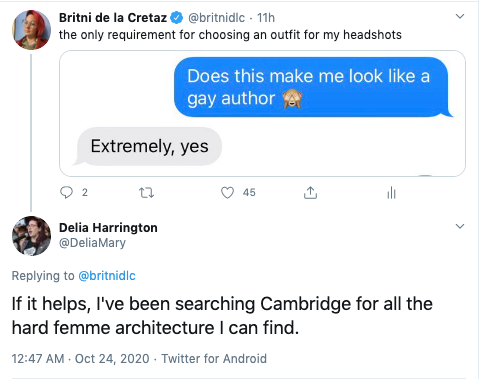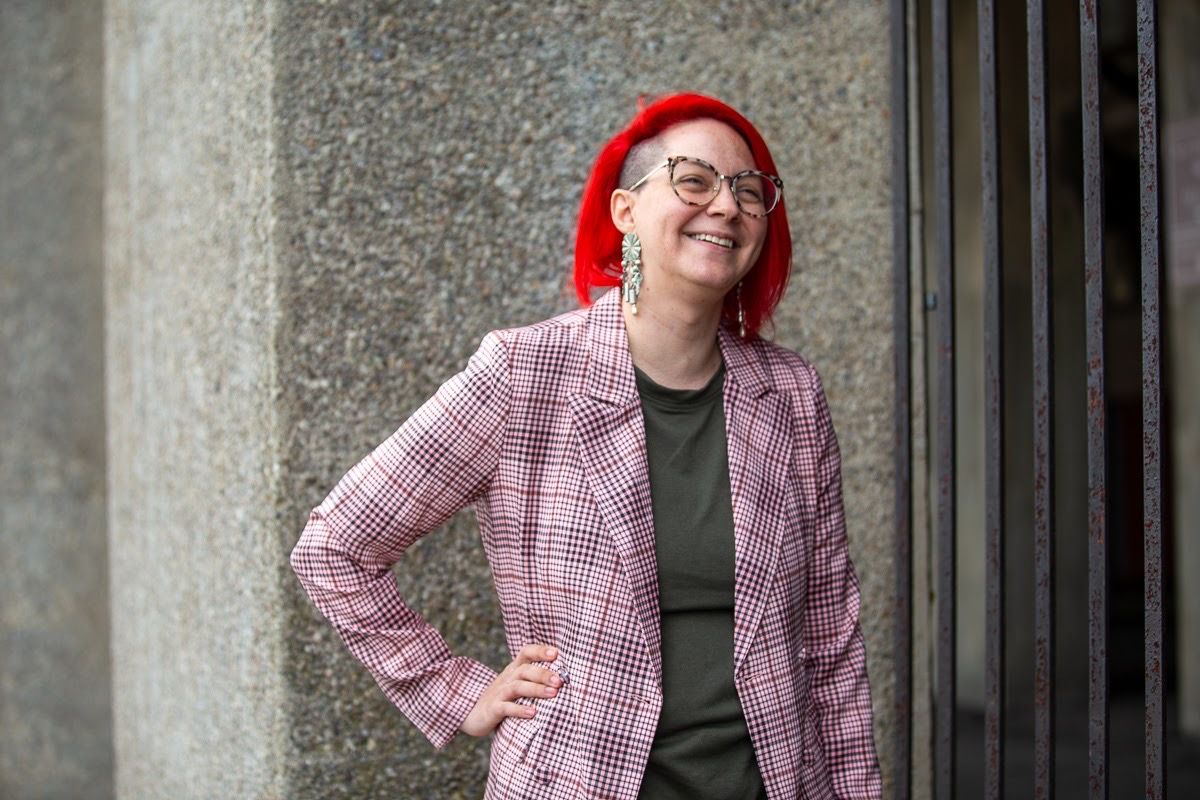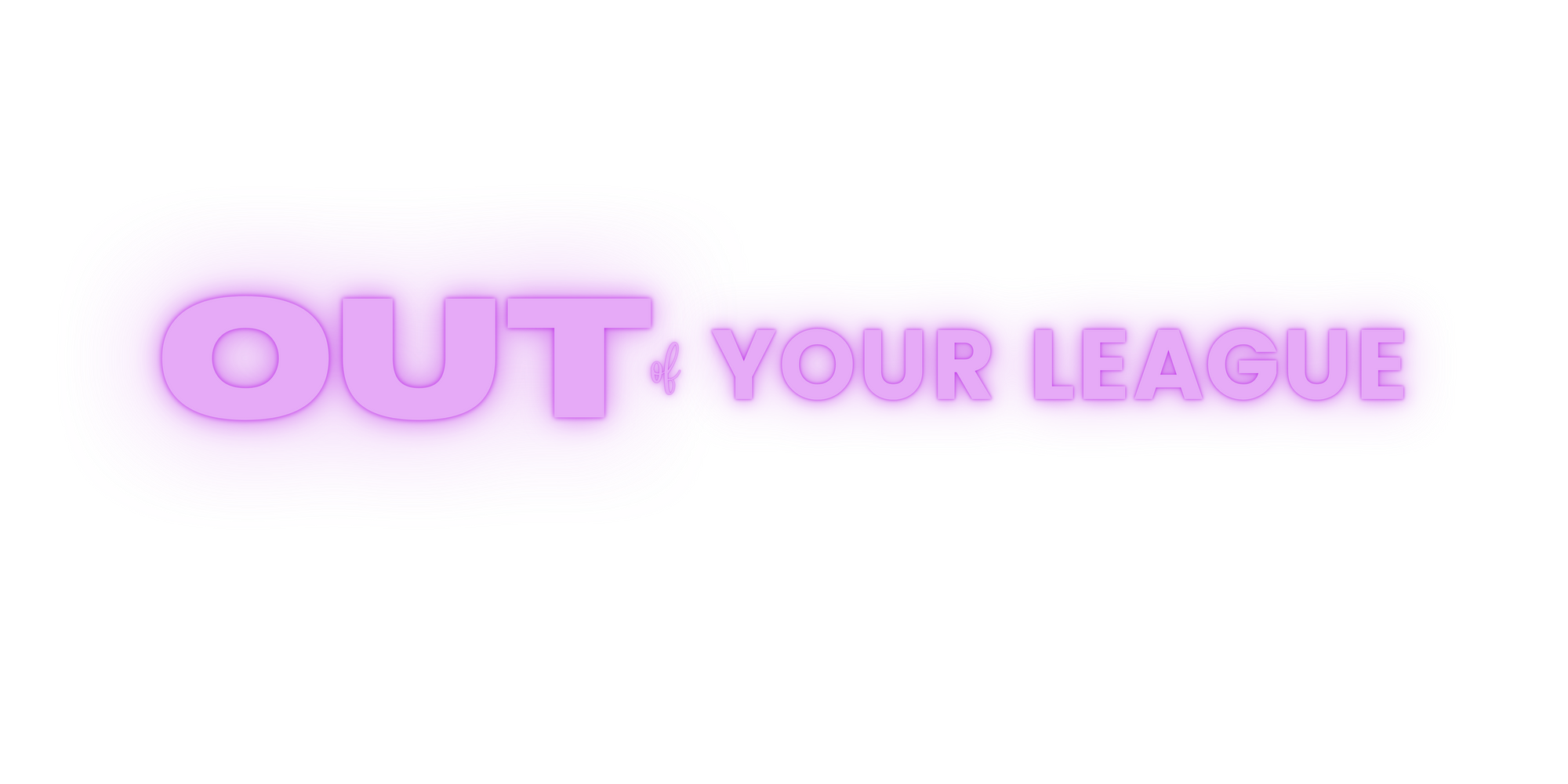how to take control of your image
or, how to choose a headshot

I’ve been thinking a lot about gaze lately. Of course, that makes sense, because I am a writer and I am often thinking about the lens stories are told through and what it means to fix our gaze on someone or something. I think about whose gaze I write for and whose I do not care to cater to.
I workshopped a piece of writing with a group last week. The piece was about queer and trans sex and queer desire. Some of the cishet members of the group felt I needed to define more of my terms, to take the reader by the hand and explain my world and my body and my community to them. But I do not think that is my job, as a writer. I have no desire to write for cishet people. I have read a million essays about sex between people who are not like me and, using context clues or Google, I can understand what is going on. It’s not my job to make straight people feel comfortable or held reading my work. There’s plenty of existing work that will do that for them. I write for other queers, always have. I won’t apologize for that.
Gaze came up again a few days later as I prepared to take headshots for book promotion. “I want to look gay,” I told my partner. He asked what that meant to me, and for which viewer my gayness should resonate. Do I want to look gay so that other queer people see me or do I want to look gay so that straight people can place me in that framework? The answer then was clear too: I am queer for other queers, to be seen by them and desired by them and visible to them, to say, “I am like you and I am here.” The only thing I care about straight people understanding when they view my photos is that I’m not concerned with adhering to any standards of beauty or professionalism they’ve created.
And then there’s the gaze of the photographer who shoots me. I asked my friend Delia Harrington to take my photos. I wanted someone who knew me, but someone who shared and understood parts of my identity, too. Delia took the time to research “hard femme architecture” in Cambridge where we could shoot; she looked up examples of headshots from other non-binary authors.
There are two ways to be shot by a photographer: the one who shoots you like they would any other person, and the one who shoots you by taking your identity into account. Only one of those photographers truly sees you.
Delia truly sees me.

The resulting images look very much like me, but choosing which one to use for my book jacket was another interesting conversation in gaze. What am I trying to say with my facial expression? With my clothing? How does this image relate to my book and the story we are telling within it?
Within my close circle of people, we narrowed the choices down to two photos but everyone was essentially split. So I threw the choice to Twitter.
A couple of things came out of asking a large number of people which photo of myself should adorn the jacket of my book. And one thing that came up over and over was: in the second photo, I look at ease and more like myself while in the first, I look more professional.
Professional, I was told, is important for someone like me writing a book like mine. And it was actually that argument that pushed me to go with photo number two.
Because to be honest, fuck professionalism. “Professionalism” is an arbitrary standard for what someone who has authority and is good at their job should look like, and that standard is based around an aesthetic created and reinforced by white, cishet men. Rhetoric around what it means to “look professional” is rooted in cisheteronormative, white supremacist, patriarchal values that I do not give a fuck about and actively spend my life trying to dismantle.
Yes, it’s true that people are going to doubt my authority as a sportswriter because I am a femme queer person (one that many people will read as a woman, which is an entirely other issue with the feedback I got, which was meant for women and is therefore based in sexist ideas about power and authority). But the people who are going to doubt my authority because I’m femme and queer are going to doubt me whether I’m wearing a blazer or I’m wearing a t-shirt.
People who are read as women are often told we look angry or unapproachable when we’re not smiling, so I understand the advice to use a photo of me smiling is to hedge some of the feedback I will get saying I look like a bitch. But the thing is, I don’t give a fuck if I look like a bitch. I’m BADASS. I WROTE A MOTHERFUCKING BOOK. So don’t mind me looking smug as hell on the jacket of THE BOOK I WROTE because how many of the shitty men who are going to criticize our work have written their own books? Probably very few of them.
As I attempt to do the best I job I can at moving through the world as the most authentic version of myself, I want that to translate to my work. Maybe me smiling in a nice blazer is the most conventionally expected or acceptable author photo to use. But me looking like I’m “up to some shit” and sporting what my friend Austen E. Osworth calls “big dick energy” in my queer-as-fuck earrings is the truest version of myself. And that is who wrote this book. (Btw, you should read this essay Austen wrote about thirst traps and the trans gaze since you’re here and it’s very related).
I should not have to make myself more palatable to mainstream ideas of respectability for my work to have value or be taken seriously. The only gaze I care to cater to anymore is my own.

